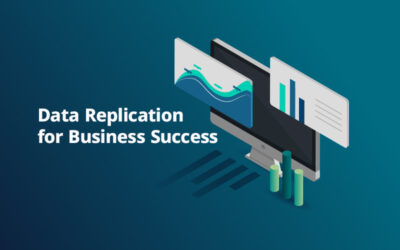Regarded as one of the most cutting-edge technologies across diverse business sectors, Artificial Intelligence (AI) in the pharmaceutical industry has radically transformed their mode of operations. According to research reports, the global pharmaceutical manufacturing market, valued at USD 405.52 billion in the year 2020, is expected to grow at a compound annual growth rate (CAGR) of 11.34 percent from 2021 through 2028. Nowadays, pharmaceutical and biotech companies tend to adopt automated processes using advanced data analytic tools that incorporate artificial intelligence and machine learning technologies to deliver safe, reliable drugs to the market. Right from augmented intelligence applications such as quick diagnosis of diseases, identifying patients for clinical trials, drug manufacturing and discovery, clinical applications (such as medical imaging and surgical robots) and predictive forecasting – the scope and usage of this technology are endless. Using advanced AI technology in pharmacy offers several benefits – reduced cost and time, confidentiality of client data, and increased accuracy and effectiveness of the business operations related to document management and billing. Associating with a reliable business process outsourcing company can help pharmaceutical companies to carry out various processes more quickly and efficiently.
Pharmaceutical executives are looking for innovative ways to leverage artificial intelligence and machine learning within the biotech industry. In fact, top pharmaceutical companies are collaborating with AI vendors and leveraging the technology in their manufacturing processes for research and development and overall drug discovery. According to a McKinsey Global Institute report, AI and machine learning in the pharmaceutical industry could generate nearly $100B annually across the US healthcare system. Top pharmaceutical companies like Roche, Pfizer, Merck, AstraZeneca, GSK, Sanofi, AbbVie, Bristol-Myers Squibb, and Johnson & Johnson have already collaborated with or acquired AI technologies. The usage of these technologies offers several benefits such as improved decision making, innovation optimization, improved efficiency of research/clinical trials, and creation of new tools for physicians, consumers, insurers, and regulators.
Current Applications of AI in the Pharmaceutical Industry
Right from early stage drug discovery to prescribing treatment options, the usage of AI technology has been growing at an exponential rate within the biopharma industry. The AI technology usage market is expected to reach $10B by 2024 (including AI-based medical imaging, diagnostics, personal AI assistants, drug discovery, and genomics). Here discussed are some of the top applications of AI in the pharmaceutical industry –
- Drug Development, Production and Manufacturing – As per research by MIT, about 14 percent of all drugs in clinical trials win approval from the FDA. This means the drug approval process can lead to significant costs, if it is not approved. This is the point wherein AI can play a pivotal role in improving and optimizing the drug development process. In areas of new drug development and production, the scope of AI technology to improve processes is tremendous such as –
- Performing quality control and ensuring standards
- Performing predictive maintenance and reducing operational costs
- Shorten design time, reduce materials waste
- Improving production reuse value
- Increased automation of daily core workflows
- Fixing supply chain issues within the production line
- Forecasting demand and supply changes
The technology can be leveraged in many ways to increase production efficiency with faster output and reduced waste. For instance, a typical process that relies on human intervention to input or manage process data can be done using CNC (computer numerical control). The AI machine learning algorithms check whether these tasks are performed correctly and identify the key process areas where these can be streamlined. This in turn leads to low material wastage, faster production and consistent adherence to the product’s Critical Quality Attributes (CQAs).
- Drug Discovery and Design – Right from designing new molecules to identifying novel biological targets, AI helps in drug target identification and validation. The technology solutions can be implemented to identify specific disease patterns in large datasets and analyze which drug compositions would be apt for treating different diseases. It can also help in multi-target drug discoveries, drug repurposing and biomarker identification. One of the key potentials of AI when it comes to pharma companies lies in areas such as drug trials – in reducing the time a drug takes to get approval and reach the market. This helps in cost savings, which could mean lower cost drugs and more treatment choices for patients. For instance, by using data such as longitudinal electronic medical records (EMR records), next generation sequencing, and other omics data – pharmaceutical researchers can identify and validate new cancer drug targets that can be used to create representative models of individual patients.
- Processing Biomedical and Clinical Data – AI can be used in algorithms designed to read, group and interpret large volumes of textual data. This can be a significant time saver for researchers in the life sciences industry as it provides a more efficient way to examine the huge amount of data from research publications in order to validate or discard the hypotheses. Additionally, many clinical studies still rely on paper diaries wherein patients log or record information such as – when they took a drug, what other medications they took, and any adverse reactions they suffered. By leveraging AI solutions, every single detail ranging from handwritten notes and test results to environmental factors and imaging scans – can be easily collected and analyzed. Using AI technology in this way offers several benefits like – faster research and cross-referencing of data and combining and extracting data into usable formats for analysis.
- Identifying Rare Diseases and Personalized Medicine – AI technology is being leveraged in various ways to detect rare diseases and even predict health issues people may face based on their genetics. In addition, the technology can also be used to develop personalized drug treatments by combining information from individual’s test results from body scans, patient biology and analytics, reactions to past drugs and historical patient data for drug reactions. For example, IBM Watson for Oncology uses AI technology to identify each patient’s medical information and history to recommend a personalized treatment plan.
- Identifying Clinical Trial Candidates – AI technology can be used in identifying patients to participate in the trials. By using advanced predictive analytics, AI can analyze genetic information to detect the appropriate patient population for a trial and determine the optimal sample size. In addition, certain AI technology can read free-form text that patients enter into clinical trial applications along with unstructured data like physician’s notes and intake documents.
- Predicting Treatment Results – AI machine learning technology can be used to predict a patient’s response to possible drug treatments. This can be done by inferring potential relationships among factors that may be affecting the results, such as the body’s ability to absorb the compounds, the distribution of those compounds in the body, and a person’s metabolism.
- Helps in Targeted and Personalized Marketing – Being an inherently sales-driven industry, pharmaceuticals can utilize the power of AI in driving a more targeted and personalized marketing campaign. AI tools can be used to –
- Collect real-time customer data (including customer’s needs, preferences, behavior)
- Curate unique marketing strategies
- Analyze key performance indicators conversion rates, retention rates, etc.
- Engage in a comparative analysis to identify inefficiencies in existing strategies
- Learn about in-store/online customer behavior
This is the age of Artificial Intelligence as almost every single industry has adopted the technology, and the pharmaceutical industry is no exception. In fact, AI technology has been applied in virtually every aspect of the pharma product lifecycle. Therefore, deploying AI capabilities in the pharmaceutical industry shows no sign of slowing down. Recent research suggests that about 50 percent of global healthcare companies plan to implement AI strategies and broadly adopt the technology by 2025. The employment of this technology in the pharmaceutical sector can increase efficiency and results in significant cost-saving benefits for a company, by automating core areas like drug manufacturing and discovery, clinical trials, quick diagnosis of diseases, biomedical data processing and more. Providers of business process outsourcing services can help pharmaceutical companies to effectively implement AI technology to carry out various processes more quickly and efficiently.




